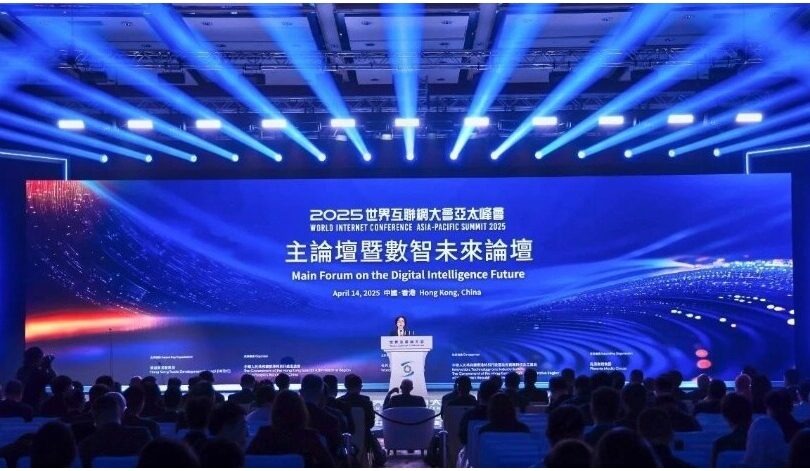BEIJING, April 17, 2025 /PRNewswire/ — A news report from chinadaily.com.cn:
The central government has pledged full support for Hong Kong’s deeper integration into the global digital landscape, vowing to help the city seize emerging opportunities in the booming digital economy.
Officials and experts made the remarks at the World Internet Conference on Monday. For the first time, the annual event launched its Asia-Pacific summit outside the Chinese mainland, placing artificial intelligence and digital technologies at center stage.
Wang Yong, vice-chairman of the National Committee of the Chinese People’s Political Consultative Conference, said digital integration is now a key force driving productivity reform and sustainable regional development.
He outlined China’s stance on digital governance, stating, “China promotes the joint building of a fair and just cyberspace and governance system with various countries. We advocate respect for each country’s network sovereignty and management models, while rejecting zero-sum games and technological bullying.”
Hong Kong Chief Executive John Lee Ka-chiu described the summit as “a testament to Hong Kong’s rising role as an international innovation and technology hub”, and said it also reflects “our deep integration with our country’s national development”.
Lee emphasized the importance of international cooperation “especially during these challenging times to geopolitics and trade relations”, reaffirming that “Hong Kong champions free trade and multilateralism.”
“Hong Kong welcomes all business interests from those who are keen to pursue developments with us in this global city,” he said.
Zhuang Rongwen, head of the Cyberspace Administration of China, said breakthroughs in new technologies such as AI are having far-reaching impacts on economic growth, social progress and the global political and economic landscape.
“Chinese research institutions and technology companies continue to introduce innovative achievements such as large language models, bringing strong momentum to the development of China, the Asia-Pacific region and the world,” he said. “This also provides opportunities for building a community with a shared future in cyberspace.”
Zheng Yanxiong, director of the Liaison Office of the Central People’s Government in the Hong Kong Special Administrative Region, called Hong Kong a “pioneer region in internet development” with long-standing strengths in finance, shipping and trade, and emerging advantages in AI research, innovation and talent.
He cited Hong Kong’s institutional innovation, bilingual capabilities, cultural openness and international connectivity as unique strengths, and urged the city to take a leading role in Asia-Pacific digital integration.
“We must accelerate the construction of the Northern Metropolis, relying on Hong Kong Science Park and Cyberport, and join forces with major cooperation platforms such as the Qianhai Shenzhen-Hong Kong Modern Service Industry Cooperation Zone, the Lok Ma Chau Loop, and Guangzhou’s Nansha District,” Zheng said.
He said such efforts would attract enterprises in the digital integration field and form industrial clusters spanning artificial intelligence, big data, cloud computing and blockchain.
Zheng also emphasized leveraging the “one country, two systems” framework to build cross-border data flow mechanisms aligned with international rules, promoting secure and orderly data circulation and resource sharing.
Nearly 1,000 delegates attended the two-day event, representing government agencies, businesses, international organizations and academia from about 30 countries and regions.
Zhang Donggang, Party secretary of the Renmin University of China, underlined the importance of talent development in the digital sector.
“The high-quality development of digital finance depends on a cohort of high-caliber, versatile professionals who understand both finance and technology,” he said.
“Only with a large number of outstanding financial talents who possess vision, responsibility and passion can we truly advance digital inclusive financial innovation and achieve sustainable development with inclusive coverage.”
On the sidelines of the conference, John Hoffman, CEO of GSMA Ltd, noted that on a global scale, artificial intelligence is emerging as a powerful force with the potential to transform businesses and society in unprecedented ways.
Over the next 10-20 years, McKinsey, a global management consulting firm, estimates that AI could bring up to $680 billion in benefits to the telecommunications industry, he said. Hoffman said the company is at the forefront of adopting AI and hopes to drive more value by empowering consumers and businesses through artificial intelligence.
SOURCE chinadaily.com.cn



